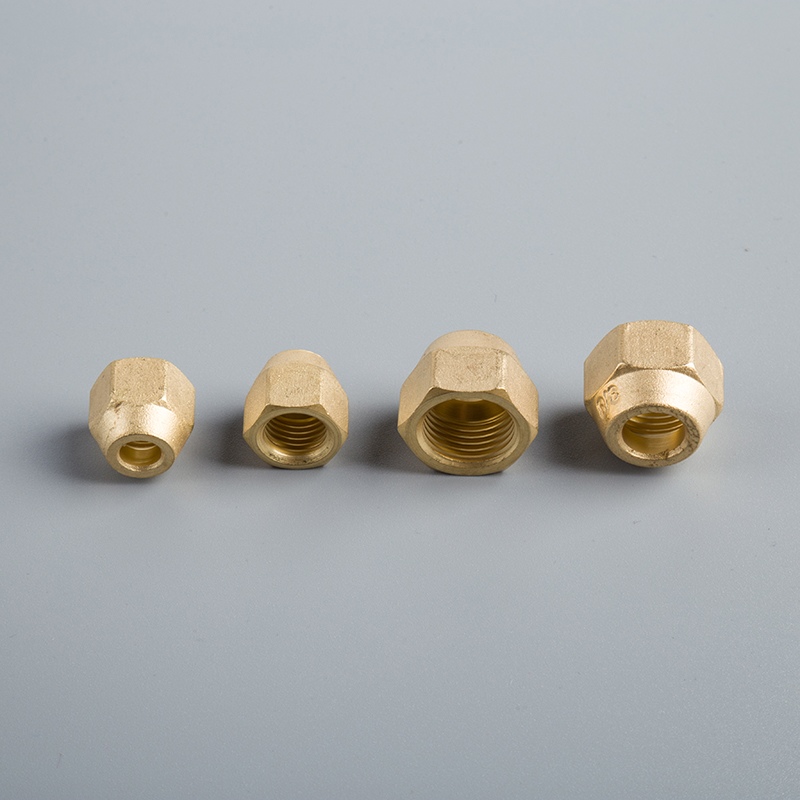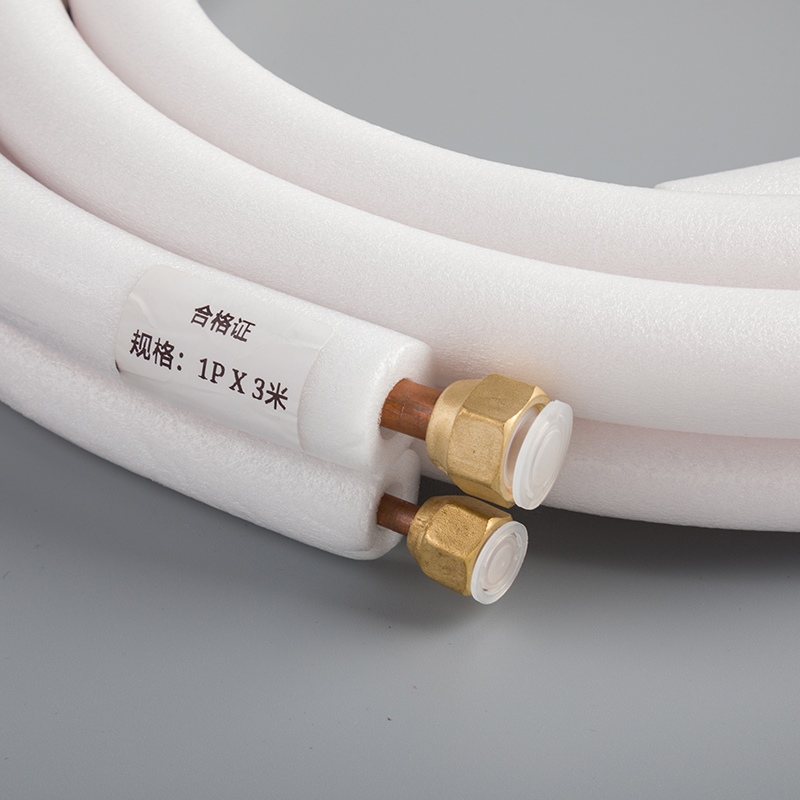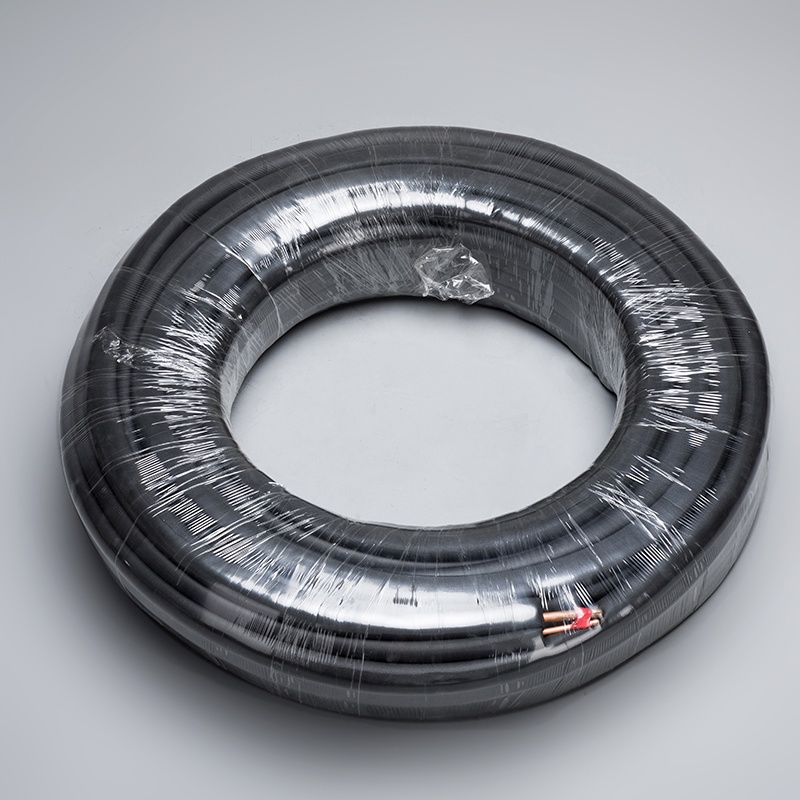A Complete Guide to Choosing the Best Copper Pipe for Your AC System

Copper pipes are essential components in optimizing energy consumption within air conditioning systems. Their exceptional thermal conductivity reduces overall energy usage while ensuring peak performance. Cost-effective and long-lasting, copper pipes guarantee efficient heat transfer properties, making them a top choice for AC systems. This blog provides an in-depth exploration of selecting the best copper pipe for AC, covering key points to help you make informed decisions for your air conditioning needs. Additionally, we will discuss the best copper pipe detector to ensure proper installation, the best copper pipe solder for secure connections, and the best insulation for copper pipes to maintain efficiency and prevent energy loss.
Understanding Copper Pipes

Copper pipes play a crucial role in various applications, including plumbing and HVAC systems. Understanding the distinct characteristics of different types of copper pipes is essential for selecting the most suitable option based on specific requirements.
Types of Copper Pipes
Type L Copper Pipes
Evaluate the pressure ratings of different copper pipe types. Type L copper pipes typically have higher pressure ratings compared to Type M pipes, making them ideal for systems with higher pressure requirements.
Consider the durability and thickness of Type L copper pipes, ensuring their longevity and reliability in demanding applications.
Type M Copper Pipes
Type M copper pipes are known for their cost-effectiveness and are commonly used in residential plumbing applications.
While they may have lower pressure ratings than Type L pipes, they are still suitable for systems operating at lower pressures.
Refrigeration Grade Copper Pipes
Refrigeration grade (R) copper pipes, also referred to as ACR (Air Conditioning and Refrigeration) pipes, are specifically designed for air conditioning and refrigeration systems.
Available in various sizes and wall thicknesses, these pipes cater to different system requirements, providing flexibility in installation.
Properties of Copper Pipes
Thermal Conductivity
The exceptional thermal conductivity of copper allows for efficient heat transfer within AC systems, contributing to energy savings.
This property ensures that the refrigerant flows smoothly through the piping, maintaining optimal cooling performance.
Durability
Copper pipes exhibit remarkable durability, withstanding high pressures and temperature variations without compromising structural integrity.
Their robust construction minimizes the risk of leaks or failures, enhancing the overall reliability of AC systems.
Corrosion Resistance
Copper's inherent resistance to corrosion makes it an ideal choice for AC applications where exposure to moisture is common.
Unlike other materials that may deteriorate over time, copper pipes maintain their integrity even in challenging environmental conditions.
Applications in AC Systems
Residential Applications
In residential settings, copper pipes are widely used for air conditioning installations due to their longevity and efficiency.
Their versatility allows for seamless integration into various home cooling systems, ensuring reliable performance.
Commercial Applications
Commercial establishments benefit from the superior performance of copper pipes in large-scale AC systems.
Whether it's a retail space or an office building, the durability and thermal properties of copper contribute to consistent cooling throughout commercial properties.
Choosing the Right Copper Pipe
When selecting the best copper pipe for AC, several factors come into play to ensure optimal performance and longevity of your air conditioning system. Understanding these considerations is crucial in making informed decisions that align with your specific requirements.
Factors to Consider
Pressure Rating
Evaluate the pressure ratings of different copper pipe types, such as Type M, Type L, and Type K. Type L copper pipes are renowned for their higher pressure ratings, making them suitable for systems with elevated pressure demands.
Consider the pressure requirements of your AC system to determine the most appropriate copper pipe type that can withstand the operating conditions effectively.
Wall Thickness
Delve into the wall thickness variations among copper pipe options like Type B, Type L, and Type M. Type B pipes feature thick walls designed for high-pressure applications, ensuring structural integrity under demanding conditions.
Assess the wall thickness specifications to select a copper pipe that can support the required pressures without compromising performance or safety.
Cost and Quality
Compare the cost-effectiveness and quality attributes of different copper pipe variants like Type M and Type L. Type M pipes are known for their affordability while still offering reliable performance in low-pressure settings.
Prioritize both cost efficiency and quality when choosing a copper pipe for your AC system to achieve a balance between budget considerations and long-term durability.
Best Copper Pipe for AC
Best Copper Pipe Detector
Utilize a reliable copper pipe detector to ensure accurate identification of piping routes during installation or maintenance tasks. These detectors help prevent accidental damage to existing pipes and streamline repair processes efficiently.
Best Copper Pipe Solder
Opt for high-quality copper pipe solder to create secure connections between pipes, fittings, and components within your AC system. Quality solder enhances joint strength, minimizing the risk of leaks or failures over time.
Best Insulation for Copper Pipes
Invest in top-notch insulation materials designed specifically for copper pipes to enhance energy efficiency and prevent heat loss. Proper insulation helps maintain consistent cooling performance while reducing energy consumption in your air conditioning setup.
Installation and Maintenance

Installation Tips
Proper Fittings
Use high-quality fittings to ensure secure connections between copper pipes, fittings, and components within the air conditioning system.
Properly sized fittings prevent leaks and maintain the structural integrity of the piping system.
Regularly inspect fittings for any signs of wear or damage to address issues promptly.
Avoiding Leaks
Implement preventive measures to avoid leaks in copper pipes, such as applying appropriate sealants during installation.
Conduct pressure tests after installation to identify potential leak points and address them effectively.
Monitor the system regularly for any indications of leaks, including water stains or moisture accumulation.
Maintenance Practices
Regular Inspections
Schedule routine inspections of copper pipes to detect any signs of corrosion, damage, or wear that may compromise system performance.
Inspect joints and connections for tightness and integrity to prevent potential leaks.
Document inspection findings and maintenance activities for future reference and tracking.
Cleaning and Upkeep
Clean copper pipes periodically to remove debris, dirt, or contaminants that can affect heat transfer efficiency.
Use non-abrasive cleaning methods to avoid damaging the pipe surface while ensuring optimal performance.
Apply protective coatings or treatments as needed to enhance corrosion resistance and prolong the lifespan of the copper piping.
Troubleshooting Common Issues
Detecting Leaks
Utilize leak detection tools or methods, such as pressure testing or visual inspections, to identify leaks in copper pipes accurately.
Address leaks promptly by repairing or replacing damaged sections of piping to prevent further issues.
Consider professional assistance if persistent leaks pose challenges in troubleshooting.
Addressing Corrosion
Implement corrosion prevention strategies by using anti-corrosive coatings or treatments on copper pipes.
Regularly monitor areas prone to corrosion, such as exposed outdoor piping, and take proactive measures to mitigate risks.
Consult with HVAC professionals for expert advice on addressing corrosion-related issues effectively.
Enhancing air conditioning performance relies on the proper selection and maintenance of copper pipes. The significance of pure copper pipes lies in their ability to optimize AC systems, providing superior heat transfer properties and long-term reliability. Using copper pipes offers advantages such as superior heat transfer, durability, corrosion resistance, and ease of installation. These benefits contribute to the efficiency, reliability, and longevity of the air conditioning system, ensuring optimal comfort and performance for both residential and commercial applications. Moving forward, prioritizing the selection of high-quality copper pipes and implementing regular maintenance practices will be key in maximizing the lifespan and efficiency of your AC system.
See Also
Benefits of Opting for Copper Tubing in HVAC Systems
Maximizing Performance of Copper Piping Systems
Top Tips for Selecting Premium Copper Pipe Connectors


